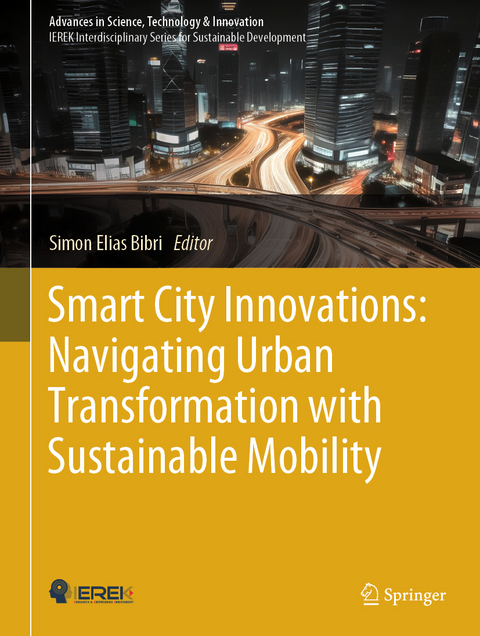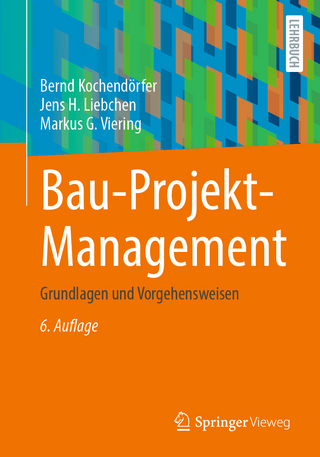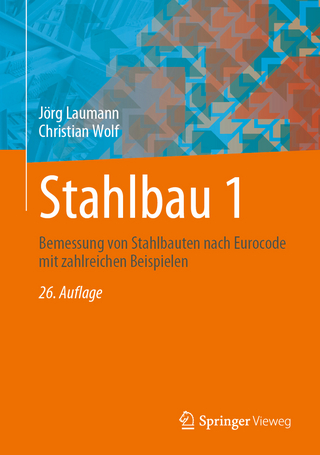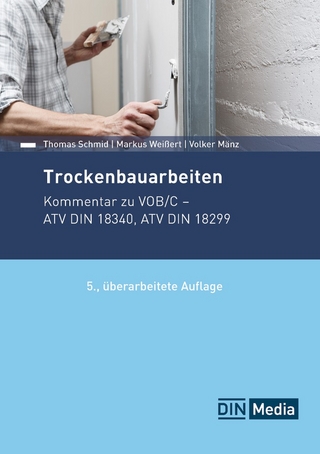
Smart City Innovations: Navigating Urban Transformation with Sustainable Mobility
Springer International Publishing (Verlag)
978-3-031-57384-2 (ISBN)
This book offers a comprehensive exploration of the intersection of urban planning, transportation, technology, and smart city development. With a keen focus on sustainability and the potential for positive change, it presents a collection of diverse chapters that shed light on emerging trends and innovative solutions in the field. The book examines the role of urban ropeways as both a public transport service and a catalyst for touristic development, highlighting their potential benefits and challenges. It also introduces novel approaches to measuring accessibility and transportation potential using Space Syntax and Geographic Information Systems (GIS), providing valuable insights for urban planners and policymakers. The chapters delve into specific areas of study, such as the driving behavior of individuals with high-functioning autism spectrum disorder, the mobility challenges faced by women in developing countries, and alternative methods of snow and ice removal in parkingareas through hydronic heating. Furthermore, the book explores the intersection of sustainability, smart cities, and global travel, considering the impact of aviation on climate change and the potential of digital humanism in the metaverse. It also examines the implications and challenges of cultural biases in smart city development, emphasizing the need for inclusive and culturally sensitive approaches. The integration of Internet of Things (IoT) in housing is discussed, focusing on the domotization of sustainable walls and their potential benefits for energy efficiency and sustainable living. The use of immersive technologies in virtual heritage is explored, showcasing innovative tourist experiences and highlighting the case of the Berati Ethnographic Museum. The book also addresses the potential of web mapping applications for smart city development, the behavioral attitudes toward ridesharing and mode preferences of shared automated electric vehicles, the development of wind turbine systems for vehicle battery recharging, and the application of knowledge-driven problem identification in transformative city design and development. "Smart City Innovations" serves as a valuable resource for researchers, professionals, policymakers, and anyone interested in the future of urban planning, transportation, and smart cities. By addressing pressing challenges and presenting innovative solutions, this book aims to inspire positive change and contribute to the creation of sustainable and livable urban environments.
Dr. Simon Elias Bibri is Senior Researcher and Project Coordinator at the Swiss Federal Institute of Technology Lausanne (EPFL), Institute of Computer and Communication Sciences (IINFCOM), School of Architecture, Civil and Environmental Engineering (ENAC), Media and Design Laboratory (LDM), He has a diverse professional background, having served as Head of Computer Department, Software Engineer, IT Business Engineer, Project Manager, Green ICT and Environmental Sustainability Strategist, Research Associate and Consultant, and Assistant Professor. Currently, he is serving as Expert in Smart Sustainable cities for the United Nations Agency of International Telecommunication Union (ITU), International Expert in Sustainable Cities for the United Nations Industrial Development Organization (UNIDO), and Editor-in-Chief of the Journal of Critical Insights in Environmental Studies at Francis and Taylor Group.
Dr. Bibri's academic journey is characterized by an interdisciplinary background, spanning the intersection of science, technology, and society-namely, computer science, computer engineering, systems science, innovation science, environmental science, and social sciences. He holds multiple Master's degrees from distinguished Swedish universities, namely Lund University, West University, Blekinge Institute of Technology, Stockholm University, Malmö University, and Mid-Sweden University. He has a PhD in Computer Science from the Norwegian University of Science and Technology (NTNU)-with a focus on data-driven smart sustainable cities. His research interests and expertise areas include smart cities, sustainable cities, smarter eco-cities, Artificial Intelligence of Things (AIoT), Generative Spatial Artifical Intelligence (GSAI), Urban Digital Twin (UDT), Internet of City Things (IoCT), Smart Urban Metabolism (SUM), platform urbanism, environmental planning and governance, environmental sustainability, smart sustainable energy, smart sustainable waste management, smart sustainable transportation, and sustainability transitions. He is a prolific author with numerous highly cited journal articles, six authored books, two edited books, and five co-edited books to his accomplishment. He has been recognized as one of the top 1% scientists in the world for four consecutive years by Stanford and Elsevier.
Urban Public Transportation and Mobility Planning.- Urban ropeway as public transport service and touristic development opportunity.- Streets Magnitude: Approach for Measuring Accessibility & Transportation Potential using Space Syntax.- GIS as a Tool for Measuring the Centrality of Transportation Networks in Budapest City.- Transportation and Urban Challenges.- On the driving behaviour of individuals with high-functioning autism spectrum disorder by using driving simulator.- Exploring Transport Mobility Issues and Adaptive Behaviour of Women in a Developing Country.- Hydronic Heating of Parking Areas instead of Mechanical Clearing of Snow and Ice.- Smart Cities and Sustainability.- Sustainability, Smart Cities, and Global Travel: Mitigating the Climate Change Impact of Aviation through Digital Humanism in the Metaverse.- Cultural Biases in the Smart City: Implications and Challenges.- Domotization of Sustainable Walls in Housing with the use of IoT.- Immersive technologies in virtual heritage for an innovative tourist experience. The case of the Berati Ethnographic Museum.- Smart Cities and Sustainable Technologies.- Unleashing the Potential of Smart Cities: A Web Mapping Application for Türkiye.- An Exploratory Study on the Behavioral Attitudes towards Ridesharing and Mode Preferences of Shared Automated EVs: A UK Outlook.- Development of a wind turbine to recharge a vehicle's battery.- Knowledge-Driven Problem Identification in Action Research for ICT4D: Towards Transformative City Design and Development.
| Erscheinungsdatum | 15.09.2024 |
|---|---|
| Reihe/Serie | Advances in Science, Technology & Innovation |
| Zusatzinfo | XVIII, 148 p. 88 illus., 56 illus. in color. |
| Verlagsort | Cham |
| Sprache | englisch |
| Maße | 210 x 279 mm |
| Themenwelt | Technik ► Bauwesen |
| Schlagworte | Big Data Analytics • Building Information Modeling • Environmental impact • Green Fuel • internet of things • smart cities • Traffic Management Techniques • Transportation safety • Transportation Systems • Urban sustainability • Urban transport • waste management techniques |
| ISBN-10 | 3-031-57384-6 / 3031573846 |
| ISBN-13 | 978-3-031-57384-2 / 9783031573842 |
| Zustand | Neuware |
| Haben Sie eine Frage zum Produkt? |
aus dem Bereich


